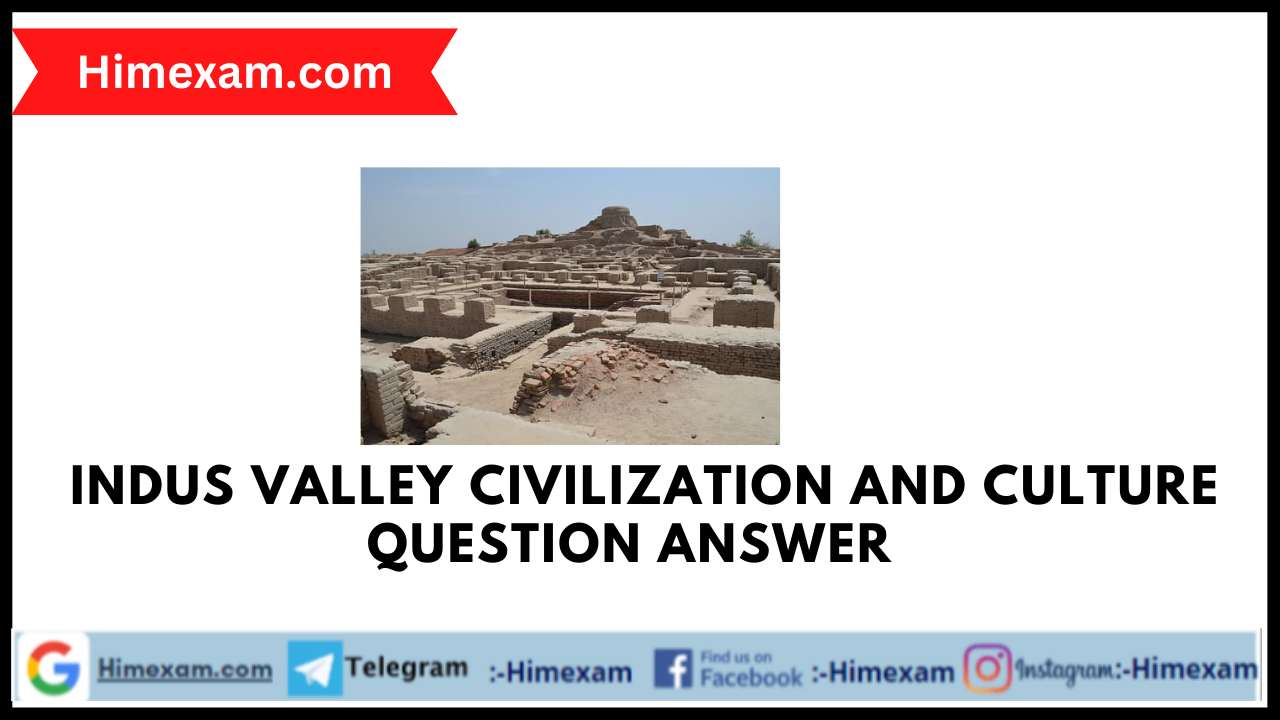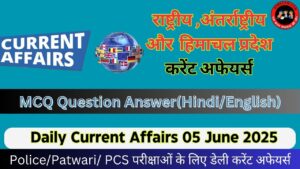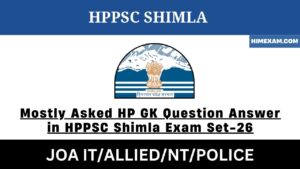Table of Contents
ToggleIndus Valley Civilization and Culture Question Answer:-
The Indus Valley Civilization (IVC), also known as the Harappan Civilization, was one of the world’s earliest urban cultures, flourishing around 2500–1900 BCE in what is today Pakistan and northwest India. This Bronze Age civilization is renowned for its advanced city planning, architecture, and social organization.
Indus Valley Civilization and Culture MCQ Question Answer:-
1. Indus Civilization existed in
(A) Pre-historical age
(B) Early historical age
(C) Historical age
(D) Later historical age
2. Indus Valley civilization was NonAryan because
(A) It was an Urban civilization
(B) It has its own script
(C) It has an agricultural economy
(D) It extended upto the Narmada valley
3. Human Society is unique because it depends mainly of
(A) Culture
(B) Economy
(C) Religion
(D) Science
4. Which of the following is related to Harappa civilization?
(A) Sumerian civilization
(B) Indus Valley civilization
(C) Vedic civilization
(D) Mesopotamian civilization
5. The important reason to keep IndusValley civilization before Aryan civilization is
(A) Script
(B) Town Planning
(C) Copper
(D) Potteries
6. The Indus Valley culture was different from the Vedic Civilization because
(A) It had the amenities of a developed city life
(B) It has a pictographic script
(C) It had a lack of knowledge of iron and defensive arrow
(D) All of the above
7. The source of knowledge about Harappan culture is
(A) Rock edicts
(B) Writing in terracotta seals
(C) Archaeological excavations
(D) All of the above
8. Which of the following throw light on Harappan culture?
(A) Inscription
(B) Archaeological excavations
(C) Handwriting seals on the utensils
(D) Religious books
9. The main source of knowledge about the inhabitants of Indus valley civilization is the discovery of
(A) Seals
(B) Utensils, jewellery, weapons, tools
(C) Temple
(D) Scripts History of India
10. The earliest evidence of silver in India is found in th
(A) Harappan culture
(B) Chalcolithic cultures of Western India
(C) Vedic texts
(D) Silver Punch-marked coins
11. Which colour was commonly used in the Harappan Pottery?
(A) Red
(B) Blue-grey
(C) Yellow
(D) Blue
12. The beginning of idol worship is to be considered in
(A) Pre-Aryan
(B) Vedic Period
(C) Mauryan Period
(D) Kushan Period
13. Which one of the following animals was not represented on the seals and terracotta art of the Harappan culture?
(A) Cow
(B) Elephant
(C) Rhinoceros
(D) Tiger
14. Which among the following Harappan site terracotta of ‘plough’ was found?
(A) Dholavira
B) Banawali
(C) Kalibangan
(D) Lothal
(E) None of the above/More than one of the above
15. A ploughed field was discovered at
(A) Mohenjodaro
(B) Kalibangan
(C) Harappa
(D) Lothal
16. The Great Bath was found from the Indus Valley civilization at
(A) Mohenjodaro
(B) Harappa
(C) Lothal
(D) Kalibangan
17. The ‘Great Bath’ was found at the archaeological site of
(A) Ropar
(B) Harappa
(C) Mohenjodar
(D) Kalibangan
18. Which of the following statements about the Indus civilization is not true?
(A) Accurate drainage system in cities
(B) Trade and commerce were in an advanced stage
(C) Worshipping of Mother Goddess
(D) People knew about iron
19. The excavation at Chanhudaro was directed by
(A) J.H. Mackay
(B) Sir John Marshall
(C) R.E.M. Wheeler
(D) Sir Aurel Stein
20. Which site of Indus Valley is now in Pakistan
(A) Kalibangan
(B) Harappa
(C) Lothal
(D) Alamgirpur
21. Rangpur, where the contemporary of Harappan civilization were found, is in
(A) Punjab
(B) Eastern Uttar Pradesh
(C) Saurashtra
(D) Rajasthan
22. Dadheri is a late Harappan site of
(A) Jammu
(B) Punjab
(C) Haryana
(D) U.P.
23. Which site of Indus Valley Civilization is located in India?
(A) Harappa
(B) Mohenjodaro
(C) Lothal
(D) None of the above
24. The Harappan city represented by the archaeological site of Lothal was situated on the river
(A) Narmada
(B) Mahi
(C) Bhogava
(D) Bhima
25. Harappan civilization, Lothal, is located in
(A) Gujarat
(B) Punjab
(C) Rajasthan
(D) Sindh
26. The port city of Indus Valley Civilization was
(A) Harappa
(B) Kalibangan
(C) Lothal
(D) Mohenjodaro
27. Which of the following is a Harappan port?
(A) Alexandria
(B) Lothal
(C) Mahasthangarh
(D) Nagapattinam
28. Which of the following is not an Indus Valley Civilization site?
(A) Kalibangan
(B) Ropar
(C) Patliputra
(D) Lothal
29. The largest site of Harappa in India is
(A) Alamgirpur
(B) Kalibangan
(C) Lothal
(D) Rakhigarhi
30. The biggest Harappan site in India is
(A) Rakhigarhi
(B) Dholavira
(C) Kalibangan
(D) Lothal
31. The people of Indus valley believed in
(A) Spirit and Brahma
(B) Ritual
(C) Sacrificial system
(D) Mother Goddess
32. The Indus valley people worshipped
(A) Shiva
(B) Indra and Varun
(C) Brahma
(D) Vishnu
33. Who was the director of the archaeological excavation that led to the discovery of Harappa and Mohenjodaro?
(A) Lord Macaulay
(B) Sir John Marshall
(C) Clive
(D) Colonel Tad
34. Two Indians who were associated with discovery of Indus Valley Civilization, are
(A) Rakhal Das Banerjee and Dayaram Sahni
(B) John Marshall and Ishwari Prasad
(C) Ashirwadi Lal Srivastava and Rangnath Rao
(D) Madhosarup Vats and V.B. Rao
35. Which one of the following is not correctly matched?
(A) Harappa – Daya Ram Sahni
(B) Lothal – S.R. Rao
(C) Surkotada – J.P. Joshi
(D) Dholavira – B.K. Thapar
36. The first archaeologist who excavated Harappa, but could not recognize its significance, was
(A) A. Cunningham
(B) Sir John Marshall
(C) Mortimer Wheeler
(D) George F. Dales
37. Who among the following was not associated with the excavation of Harappa and Mohenjodaro?
(A) R.D. Banerjee
(B) K.N. Dikshit
(C) M.S. Vats
(D) V.A. Smith
38. From which one of the following places, remains of wells have been found in houses belonging to the developed stage of the Indus Valley Civilization?
(A) Harappa
(B) Kalibangan
(C) Lothal
(D) Mohenjodaro
39. Mohenjodaro is situated in which of the following?
(A) Gujarat state of India
(B) Punjab state of India
(C) Sindh Province in Pakistan
(D) Afghanistan
40. The first metal used by man was
(A) Gold
(B) Silver
(C) Copper
(D) Iron
41. An ivory scale in Harappan context was found at
(A) Kalibangan
(B) Lothal
(C) Dholavira
(D) Banawali
42. Which metal has so far not been discovered in Harappan sites?
(A) Copper
(B) Gold
(C) Silver
(D) Iron
43. Which one among the following sites is located in the valley of Ghaggar and its associated rivers?
(A) Alamgirpur
(B) Lothal
(C) Mohenjodaro
(D) Banawali
44. From where the evidence of rockcut architecture were found, with reference to Harappa civilization?
(A) Kalibangan
(B) Dholavira
(C) Kot Diji
(D) Amri
45. Dholavira is located in the state of
(A) Gujarat
(B) Haryana
(C) Punjab
(D) Rajasthan
46. Which Harappan city is divided into three parts?
(A) Lothal
(B) Kalibangan
(C) Dholavira
(D) Surkotada
47. In which of the following site remnants of three townships have been revealed?
(A) Mohenjodaro
(B) Sanghol
(C) Kalibangan
(D) Dholavira
48. A highly advanced water management system of Harappan times has been unearthed at
(A) Alamgirpur
(B) Dholavira
(C) Kalibangan
(D) Lothal
49. Which of the following sites has yielded evidence of a triple burial
(A) Kuntasi
(B) Dholavira
(C) Lothal
(D) Kalibangan
50. Recently, from excavations of Harappan site Sonauli what was found?
(A) Human burials
(B) Animal burials
(C) Residential building
(D) Protecting wall
51. For clothing, cotton cultivation was first introduced in
(A) Egypt
(B) Mesopotamia
(C) Central America
(D) India
52. Which of the following characterises / characterise the people of Indus Civilization?
1. They possessed great places and temples.
2. They worshipped, both male and female deities.
3. They employed horse-drawn chariots in warfare.
Select the correct answer using the code given below.
(A) 1 and 2
(B) Only 2
(C) All of these
(D) None of these
53. One of the following sites from where the famous bull-seal of Indus Valley Civilization was found.
(A) Harappa
(B) Chanhudaro
(C) Lothal
(D) Mohenjodaro
54. Which one of the following animals is not depicted on the Harappan seal?
(A) Bull
(B) Elephant
(C) Horse
(D) Sheep
55. Remains of which animal have not been discovered in the Indus Valley Civilization?
(A) Lion
(B) Horse
(C) Cow
(D) Elephant
56. A horned deity engraved on a terracotta cake has been recovered from
(A) Banawali
(B) Kalibangan
(C) Lothal
(D) Surkotada
57. Which of the following civilization flourished on the bank of River Nile?
(A) Roman Civilization
(B) Indus Valley Civilization
(C) Greek Civilization
(D) Egyptian Civilization
58. What is the correct NorthSouth sequence of the following civilizations?
(A) Maya – Aztec – Muisca – Inca
(B) Maya – Muisca – Inca – Aztec
(C) Aztec – Muisca – Maya – Inca
(D) Aztec – Maya – Muisca – Inca
59. The first ancient civilization to develop the art of writing in a proper system was?
(A) Indus
(B) Egypt
(C) Sumerian
(D) China
60. Which of the following match is not correct regarding the origin of Harappan civilization?
List-I List-II
(a) M. Rafique Mughal 1. Harappan civilization was inspired by Mesopotamian civilization
(b) E.J.H. Mackay 2. Migration of people from Sumer
(c) Mortimer Wheeler 3. Migration of ‘idea of civilization’
(d) Amalandanda Ghosh 4. Pre-Harappan culture matured to make Harappan civilization
(A) (a) – 1
(B) (b) – 2
(C) (c) – 3
(D) (d) – 4
61. Match List-I (Ancient site) with List-II (Archaeological finding) and select the correct answer using the code given below the lists.
List-I (Ancient site) List-II (Archaeological finding)
(a) Lothal 1. Ploughed field
(b) Kalibangan 2. Dockyard
(c) Dholavira 3. Terracotta replica of a Plough
(d) Banawali 4. An inscription comprising History of India 5 ten large sized signs of the Harappan script
Code (a) (b) (c) (d)
(A) 1 2 3 4
(B) 2 1 4 3
(C) 1 2 4 3
(D) 2 1 3 4
62. Match List-I with List-II and select the correct answer by using the code given below the lists [
List-I List-II
(a) Harappan 1. Godavari
(b) Hastinapur 2. Ravi
(c) Nagarjuna Konda 3. Ganga
(d) Paithan 4. Krishna
Code (a) (b) (c) (d)
(A) 1 2 3 4
(B) 2 3 4 1
(C) 4 3 2 1
(D) 3 4 1 2
63. Match List-I with List-II and select the correct answer from the code given below. [
List-I (Harappan Settlement) List-II (River on which located)
(a) Harappa 1. Bhogava
(b) Kalibangan 2. Ghaggar
(c) Lothal 3. Ravi
(d) Ropar 4. Sutlej
(a) (b) (c) (d)
(A) 3 2 1 4
(B) 3 4 1 2
(C) 4 2 3 1
(D) 1 3 2 4
64. Indus Valley civilization is known
1. For its town planning
2. For Mohenjodaro and Harappa
3. For their agricultural work
4. For its industrialization
Code
(A) 1 and 2
(B) 1, 2 and 3
(C) 2, 3 and 4
(D) All of these
65. Which of the following is not correctly matched?
(A) Alamgirpur – Uttar Pradesh
(B) Lothal – Gujarat
(C) Kalibangan – Haryana
(D) Ropar – Punjab
66. For the Harrapan Cultural sites and its position, which of the following is not correctly matched? (A) Alamgirpur – Uttar Pradesh
(B) Banawali – Haryana
(C) Daimabad – Maharashtra
(D) Rakhigarhi – Rajasthan
67. Match List-I with List-II and select the correct answer from the code given below.
List-I (Harappan Site) List-II (Location)
(a) Manda 1. Rajasthan
(b) Daimabad 2. Haryana
(c) Kalibangan 3. Jammu-Kashmir
(d) Rakhigarhi 4. Maharashtra
Code (a) (b) (c) (d)
(A) 1 2 3 4
(B) 2 3 4 1
(C) 3 4 1 2
(D) 4 1 2 3
68. Which of the following sites of Harappan culture are located in Sindh?
1. Harappa
2. Mohenjodaro
3. Chanhundaro
4. Surkatada
Indicate the correct answer from the code given below.
(A) 1 and 2
(B) 2 and 3
(C) 2, 3 and 4
(D) 1, 2, 3 and 4
69. Indus Valley Civilization, which was placed on the banks of the river, they were?
1. Sindhu
2. Chenab
3. Jhelum
4. Ganga
Choose the correct answer from the code given below.
Code
(A) 1 and 2
(B) 1, 2 and 3
(C) 2, 3 and 4
(D) All four
70. What is the correct chronological order in which the following appeared in India?
1. Gold coins
2. Punch-marked silver coins
3. Iron plough
4. Urban culture
Select the correct answer using the code given below.
(A) 3, 4, 1, 2
(B) 3, 4, 2, 1
(C) 4, 3, 1, 2
(D) 4, 3, 2, 1
71. Consider the following statements and select the correct answer from the given code.
1. Mohenjodaro, Harappa, Ropar and Kalibangan are the main sites of Indus valley civilization.
2. People of Harappa developed the road, proper housing and drainage system.
3. People of Harappa were unknown about the use of metals.
Code
(A) 1 and 2 are correct
(B) 1 and 3 are correct
(C) 2 and 3 are correct
(D) 1, 2 and 3 are correct
|| Indus Valley Civilization Question Answer || Indus Valley Civilization MCQ and Culture MCQ Question Answer || Indus Valley Civilization Question In English||
72. Assertion (A): Mohenjodaro and Harappa cities are dead now.
Reason (R): They were discovered during excavations. In the context of the above, which one of the following is correct?
(A) Both (A) and (R) are true and (R) is the correct explanation of (A)
(B) Both (A) and (R) are true, but (R) is not the correct explanation of (A)
(C) (A) is true, but (R) is false
(D) (A) is false, but (R) is true
73. Regarding the Indus Valley Civilization, consider the following statements.
1. It was predominantly a secular civilization and the religious element, though present, did not dominate the scene.
2. During the period, cotton was used for manufacturing textiles in India.
Which of the statements given above is/are correct?
(A) Only 1
(B) Only 2
(C) Both 1 and 2
(D) Neither 1 nor 2
Answer Sheet :-1. (B) 2. (A) 3. (A) 4. (B) 5. (D) 6. (D) 7. (C) 8. (B) 9. (B) 10. (A) 11. (A) 12. (A) 13. (A) 14. (B) 15. (B) 16. (A) 17. (C) 18. (D) 19. (A) 20. (B) 6 Objective General Studies 21. (C) 22. (B) 23. (C) 24. (C) 25. (A) 26. (C) 27. (B) 28. (C) 29. (D) 30. (A) 31. (D) 32. (A) 33. (B) 34. (A) 35. (D) 36. (A) 37. (D) 38. (D) 39. (C) 40. (C) 41. (B) 42. (D) 43. (D) 44. (B) 45. (A) 46. (C) 47. (D) 48. (B) 49. (C) 50. (A) 51. (D) 52. (B) 53. (D) 54. (C) 55. (A) 56. (B) 57. (D) 58. (D) 59. (C) 60. (A) 61. (B) 62. (B) 63. (A) 64. (D) 65. (C) 66. (D) 67. (C) 68. (B) 69. (B) 70. (D)
More Pages:-
हेलो दोस्तों ,आपका हमारी वेबसाइट Himexam.com पर स्वागत है। जैसा की आपको पता है हमारी वेबसाइट Himexam.com आपको समय-समय पर सभी HP Govt Jobs & All India Govt Jobs की Notifications प्रदान करवाती है। साथ ही साथ Himachal Pradesh Exam Previous Paper और Himachal Pradesh GK ,Himachal Pradesh & National +International Current Affairs के सभी नोट्स मुफ्त उपलब्ध करवाते है। हमारी वेबसाइट के अलग अलग प्लेटफार्म पर pages & Group बने है जैसे की facebook ,Telegram और Instagram .. अगर आप हिमाचल के किसी भी पेपर की तैयारी कर रहे हो तो जल्दी से इन groups के साथ जुड़ जाएं इनके लिंक नीचे table में दिए गए है।
Join Us:-
| Like Our Facebook Page | Click here |
| Join Us oN Telegram | Click here |
| Join Us On Instagram | Click Here |








